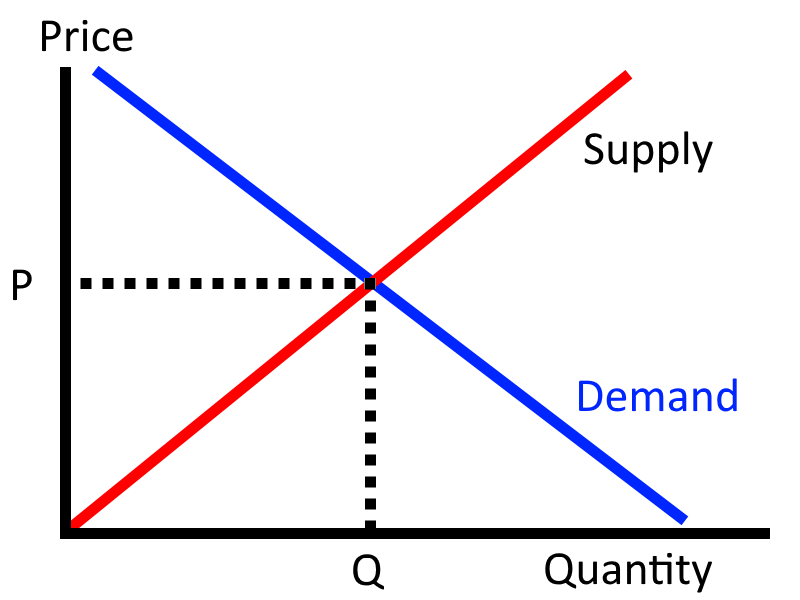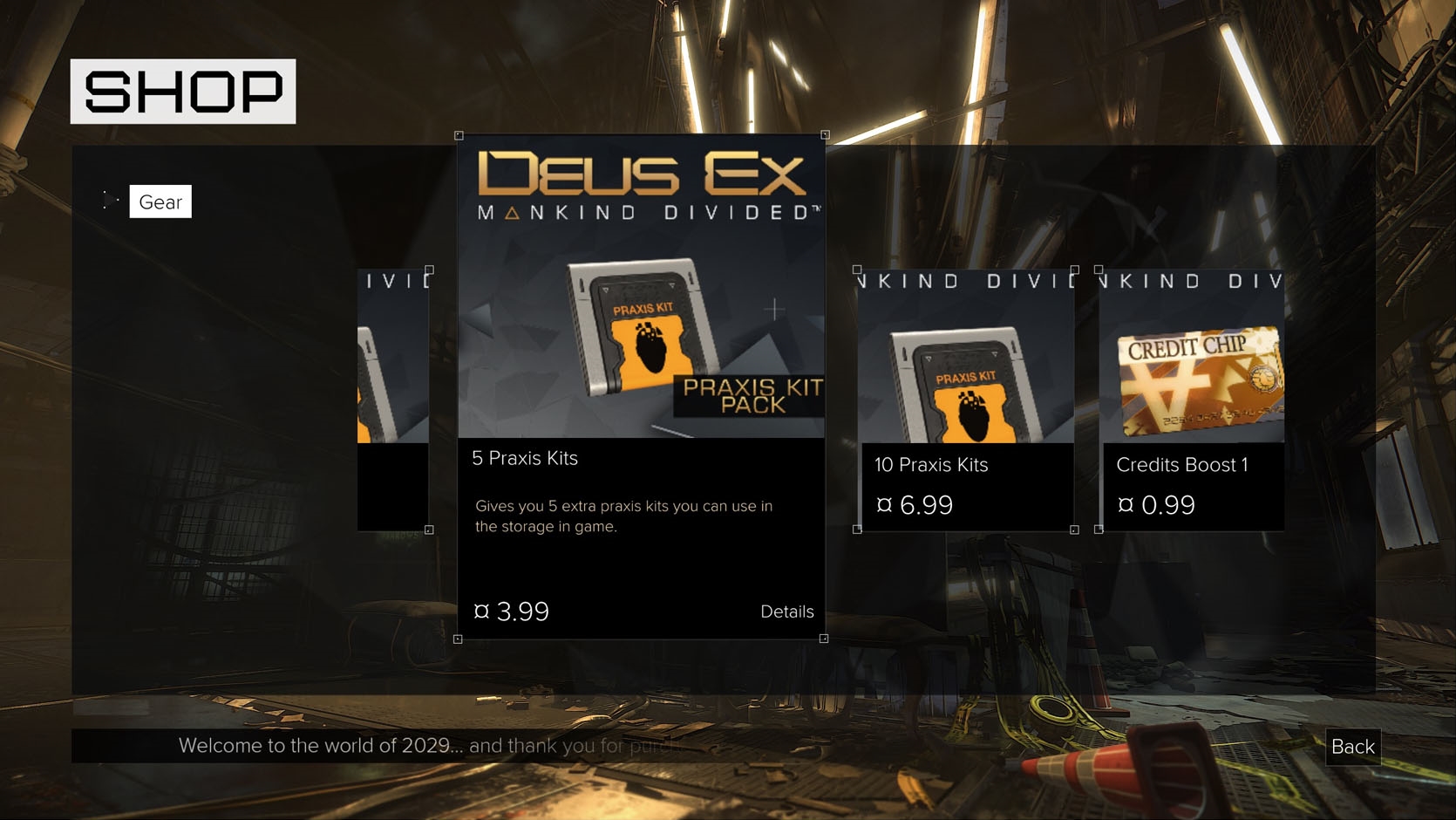
So I wanted to follow on from last month’s blog and continue to discuss the possible future of games monetization. To briefly sum up what I’ve said before, I’m concerned by an increasing trend towards heavily discounting games earlier and earlier (Battlefield, Call of Duty, and Titanfall last Christmas, for example) and the effect that this has on the perceived value of games.
The success of Spotify and Netflix’s models in other industries concerns me and we see a bit of a move in that direction with things like Humble Bundles, EA Access, and console equivalents.
If we’re not careful, we’ll get to where there’s no money to be made in games and only the most trite, generic, relatively low cost and mass-appealing titles (the Call of Duties and FIFAs) will be financially viable. We stand to lose so much as gamers if certain trends take root over the next decade or so.
The problem as I see it is that there’s a race to the bottom happening with the traditional pricing models, and while many, including myself, still prefer to pay for and own a copy of the exact game they’re looking for, the margins are shrinking all the time and in the future we may have far less games to choose from as smaller developers may no longer be able to afford to run studios, and even larger ones will be far less willing (even less than they are now) to innovate with their games.
I want to look at what is being done, and what might be done about this.
What’s Happening Today?
Library Subscriptions
This is where you basically pay a subscription and get access to a library of games as long as you’re still paying. The Spotify or Netflix model. In the last post, I mentioned how things like EA Access or a potential Steam equivalent could be disastrous for smaller games, but this is one way that EA is already trying to battle the downward trend in the perceived value of games. Hats off for trying, but I really hope they don’t succeed with this. Imagine you get laid off from work (as is quite the modern reality). Suddenly you’ve way more time to play games, but now have to cancel your subscription because you can’t afford it. You’ve got nothing.
End of Game Subscriptions(?)

Eve Online and World of Warcraft have both been retreating a bit from their monthly subscription models, chasing after their dwindling player bases. Both now offer the game for free at lower levels of play, but retain the subscription if you want a more complete experience. Granted, these games are both over a decade old, but if these titans don’t think that a subscription fee for their games is completely viable any more then it’s doubtful that newcomers will adopt the model either; though it remains to be seen if this F2P/subscription blend will do the job for either of them.
DLC
AAA has been trying for years to squeeze extra pennies out of their fans by charging more for more content, and it’s gone as far as the total DLC costs sometimes now even costing as much as the core game. This was never a popular approach, but it did work, and it helped AAA games remain viable despite their massively inflated budgets.
Now, however, they’re beginning to realise that charging for extra multiplayer maps, and having only some players migrate over leaves all of their map servers underpopulated. We don’t have details yet, but Battlefront 2 this year seems to be saying that they won’t have DLC, or at least none that prevents all of their fans from playing together.
So we’ll see some changes to how DLC works, it seems, but it’s likely to stay around in some form for a long time yet.
Loot Crates
Overwatch, Counter-Strike, Battlefield and countless others are tapping into the dark side of human psychology by charging players to maybe win something they want. They’re actually working gambling into their games to keep the coins rolling in. Well, it had to happen eventually, and because it works, we seem to be stuck with it. The disgusting part to me is that they charge you money for the chance of winning one instance of a digital good that costs them nothing to produce. I hate this (which is ironic because of what I’ll argue for later, though it’s mainly the gambling element that I dislike). I have never and will never go along with it, at least not in a game I’ve already paid for, but this article is about how games are going to make money in the future, so this stays, and my personal tastes be damned.

Free To Play (F2P)
This is really looking like it may become the most popular payment model in future (it pretty much is now, especially in the East), but there are so many variations on it. On mobile it often means that you view ads or pay to unlock new levels, whereas in online traditional games it often means paying for cosmetics, XP bonuses, or in-game items.
We’re seeing that on YouTube, advertisers increasingly try to sponsor a video directly so that their message is given by the host, instead of in a skippable ad which usually isn’t worth their time. What will happen to mobile F2P when advertisers decide that they’re not getting the return they need in paying everyone else’s way? Because make no mistake; advertisers pay for the party, and we all hate looking at ads. Mobile payment models will have to change, and largely I have no problem with that. With the vast majority of mobile games that I’ve played, it seems that the payment model infects the game design and almost dictates that many of these games feel the same as one another. This might just be me, but the only mobile games I’ve truly enjoyed are ones that I’ve paid premium for; namely 80 days, Reigns, Monument Valley and some others, where I pay to get in and they cease trying to sell me things. I can get immersed then.
Players by and large don’t have a problem with these payment models except for when you can pay more to have better items than other players (“pay to win”) or when they’re mixed in with premium models (“fee to pay”. This is sadly becoming the norm, it seems).
Etc, etc..
Okay and there’s more examples and more combinations, but let’s move on.
Economics 101

I mentioned at the start how the value of games seems to keep falling. In traditional economics, the price is set where supply meets demand. The problem we face in the modern age is that with digital goods, supply is infinite (for all intents and purposes. Ignoring potential server costs). Demand for games is still a finite number because it’s based on people, but since we’re not tied to a limited print of 1 million physical cartridges (or whatever), one extra game code has no inherent value in the eyes of many. It has even less when you consider the sheer volume of games on offer nowadays.
People attempt to justify piracy and theft on this basis, but others are also less willing to pay the asking price for their digital copy of a new game because it doesn’t cost as much to produce as the physical copy on the GameStop shelf (they’ve got a point, but that’s another topic).
Whatever the extent of the problem today (we could argue on that) I doubt you’ll disagree that gamers seem willing to pay less and less for games, but are still willing to pay the guts of $1,000 (those who can afford to) for a new iPhone. Physical goods hold value because their supply is limited. Classic vinyls or SNES cartridges are more valuable now than when they first sold, but people think nothing of pirating The Doors’ Greatest Hits or emulating Zelda digitally.
So how do we shore up the value of our wares to prevent a crash when supply is unlimited? Appealing to consumers’ generosity and sense of idealism isn’t the answer. Pay What You Want models are rarely successful and we’ve seen CryTek almost go out of business attempting it with their game engine.
Well, just for fun, let me throw out a few ideas and we’ll see if there’s anything to be said for them.
What Might Be Done?
Let me disclaim that I’m not necessarily hoping to see many of these in practice, and currently gamers would never stand for many of them, but since I’m talking about radical changes to how games are sold anyway, let’s just go with it. The idea that everyone should be able to afford a game and that all games should cost around the same as their peers is fundamentally flawed, doesn’t apply to many other luxury goods anyway (like sports cars, watches, hotels, food, seminars, online training courses) and will likely be something we leave behind in the future. Just saying.
Limit the Supply anyway
What if you announced that you would only sell 10,000 copies of your game, but that it would cost $100? Could you sell it to your true fans? Probably. They wouldn’t want to miss out. Okay it would depend on what the game is and the reputation of the creator(s), but I do think it would work. The economic theory is sound, anyway.
What if you built an online, living, open world like nobody had ever seen and made a bounty hunting game, but you only allow 100 access codes to the game at any one time? Access costs $2,000 and when you’re done with ownership you can auction off your right to play (so its value may rise) and the developer gets 50% of the resale? I’m only throwing around numbers, but the theory holds, I think. Could I find 100 rich YouTubers who would pay a premium to be one of the few broadcasting this historical new game? I think so. They’d make their money back on the stream, then resell their access and make more.
Virtual Real Estate
Let’s talk about the apartments in GTA V Online, but this could apply to any hub world. You pay in-game currency to buy swanky (or not-so-swanky) safe houses to store your cars in and launch heists from. The suburban bungalows come in pretty cheap but the penthouse apartments cost a lot more. You buy them with in-game cash so it’s more of a progression reward than a monetization, but since you can also buy game currency with real money the lines are blurry.

The thing is, the game just puts you into your own instance of the penthouse apartment. It might be the most exclusive high-end safehouse in the city, but pretty much everyone has it after a bit of play time or direct payment. What’s the value of that? There’s no exclusivity/scarcity. So what if they only allowed one instance of each safe house? Now, okay, since you can buy in-game cash with real world money then we would probably just have some entitled little troll lording it over everyone, and that’s not much fun for players, but I’m just trying to point out some lateral thinking. The game’s developers would be selling virtual property for real money. Real property holds value pretty well because it’s limited. Virtual property doesn’t offer real shelter, granted, but when limited in quantity it would suddenly be something that creates value. If it could only be transferred within the game, and the developers took a cut, then suddenly MMOs are still games, but now monetised by rules similar to real estate economics.
Say what you want about Star Citizen, but it’s proving that traditional payment models aren’t the only way to go. When they sell an Idris mini-carrier for €1,000 and say that they’re only selling a dozen of them, they’re snapped up in moments because the goods are (or will be when released – whatever) unique.
Pay for bullets
My friend Colm Larkin (Guild of Dungeoneering) suggested jokingly the other night that you could charge for bullets. Although he was joking, I’m going to address it earnestly. What’s the difference between a round of deathmatch and a round of paintball? Sweat and limited ammunition. That’s basically it.
Airsoft is a hobby where those who can afford it buy all the best gear, sidearms, grenades, etc, and the others just rent the site’s bog standard gun and try to conserve ammunition over the day. Nobody really complains that it’s “pay to win”, yet it kind of is. What if you had an F2P shooter where you charge admission to the servers for a day, or a reduced rate for a month’s membership? Or if extra ammo cost real money?
Nobody would go for this because shooters are a dime a dozen, but fundamentally there’s not a whole lot of difference to the entertainment value of how you spend your Sunday afternoon. I pose the question: why couldn’t it work? After all, before home internet was much of a thing, my friends and I would often pay to hang out in the local internet cafe and play Delta Force, Unreal Tournament or Half-Life on a LAN. If you think that that’s a thing of the past, just take a look at South Korea, where going to a café with friends to play League of Legends all night is very much a common past time.

Rent the hardware
Speaking of internet cafés and the like, I’ve recently heard how VR is really taking off in China and Japan. They love it, but the size of the average home or apartment is way too small to house a VR system, so they go to shopping malls and arcades that have set up high-end VR PCs that can be rented by the hour (or so).
Here we have a limited amount of real estate and hardware being rented, so it’s not the case that digital games are providing fixed value here, but we’re still fundamentally talking about games and, if anything, this just proves my point that limited supply is how value can be created, and infinite supply is a problem for the future of video game pricing.
Cloud Gaming is becoming a thing, too. It’s now possible to have your games running on high end PCs “in the cloud” and streamed directly to your smaller, cheaper device that could never ordinarily run them. You can essentially rent someone else’s gaming PC as desired, and stream the results to your TV or tablet. Again, we’re talking about renting hardware, but you can imagine how certain specific games or controllers could only be provided by one proprietary company, and they then charge for access. Here, supply is limited, and price well be set where that supply meets demand. Think of the hang-gliding VR tech or the Virtuix Omni which most people couldn’t fit in their home. Tying your game to custom hardware may be more difficult to produce, but it does ensure that you retain value in the units that you do supply.
Competition Entry Fees
Here’s another quite simple option. You run tournaments in your game. Fighting games, sports games, or deathmatch games seem likely candidates for this, but it could even work with single player games where victory is determined by the highest score or fastest completion time.
Let’s say 50 people pay $5 to play. There’s $250 in the pot. The winner takes $100 and the next two runners up take $35 and $15 each. The developer then has the remaining $100 per tournament to pay server costs, staff, and recoup development costs.
Would that work? Why not? Games are pretty social now, so I don’t see a whole lot of difference between this and going to bingo or a table quiz, especially if some of the money went to charity.
Be a Superstar
You know how most actors wait tables and earn very little from acting but Brad Pitt earns millions for the exact same job? It’s not because he’s a million times better than the next guy, it’s just because he’s not subject to the market forces of supply and demand for actors. He’s not in the acting business. He’s risen above that. He’s in the Brad Pitt business. He can sell watches or fragrances or cars. It doesn’t matter.
If the vast majority of games were being sold for 99c, and Hideo Kojima made a new game, do you think he’d also sell for 99c? No. He’d charge $50-$100 and (as long as the game reviewed well/was finished/etc) people would pay it. Gladly. Because his name carries weight. In a world where any simpleton like myself can teach themselves how to make games in less than a year, it pays to be a celebrity.
Jonathan Blow managed to charge over the odds (for an indie game) for The Witness because he’s the guy who made Braid. It didn’t have anything to do with The Witness being twice as good as the next indie game out there.
Isn’t that a little uh….?
Sort of. I mean, I’m happiest when I pay GOG a fixed fee (under $60) for a DRM-free copy of a game that I want to play and replay whenever I want. I’ll be very sad if this goes away, but things are shifting too. I hate Season Passes, most DLC, and especially fee to pay or loot crates, but I also don’t want to see my games on a service like Spotify-For-Games earning me $100 in their entire lifetime, because then I won’t be making games. I’m just trying to look ahead here.
We have to remember that games used to be extremely difficult and try to kill you off quickly so that you’d keep pumping quarters into the machines… and we loved it!! It was the birth of the modern games industry, but you could see that approach as being pretty nefarious, too. The fact that we want everything free now because it costs less (not ‘nothing’, remember) to produce each additional unit is a fairly entitled view and, I suggest, it would lead to the destruction of the games industry in the same way that it’s gutted the music industry.
In Conclusion
This topic is wide open to debate and interpretation, but the core idea that got me thinking was “what happens to the Supply and Demand model when Supply is infinite”? Price has to drop. When the price drops too low, games will cease being made. There’s no arguing with that core logic, but what happens over the next decade is fairly wide open and hard to predict.
What trends do you see emerging or disappearing? I’d love to hear from you so hop into the comments.
Until next time..

